The framework and thematic focus for the new Programme are currently under development. In order to facilitate the process, the Managing Authority/Joint Secretariat of Interreg Baltic Sea Region has involved current project partners to hear about their ideas on procedures, tools, and means of support the future Programme could offer. The survey results constitute a valuable contribution in the Programme development process.

The respondents
Almost 150 respondents from the projects approved in the first, second and third calls expressed their opinions in three thematic fields: project implementation, finances and communication. More than half of the lead partners from Interreg Baltic Sea Region regular projects replied to the survey questions. Along with a considerable number of responses provided by other project partners, the survey results appear to provide an interesting insight.
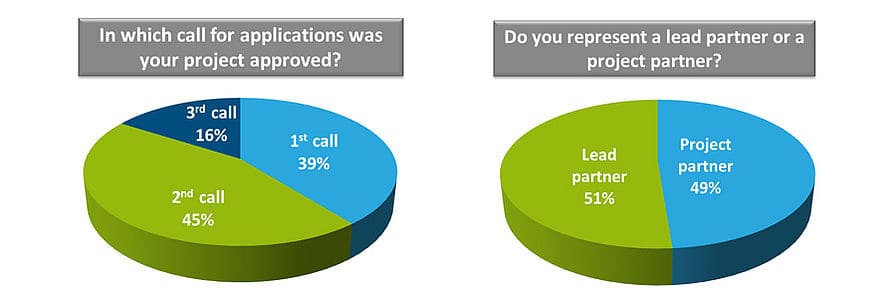
MA/JS work
With a service oriented approach, the Managing Authority/Joint Secretariat was much keen on validating the quality of support offered to applicants and projects in the application phase and throughout project implementation. All in all, the answers ranged from 3.3 to 4.5 in 5-step scale. The highest rated type of support were individual consultations, then guidance by phone, email or messaging centre as well as the Programme Manual.
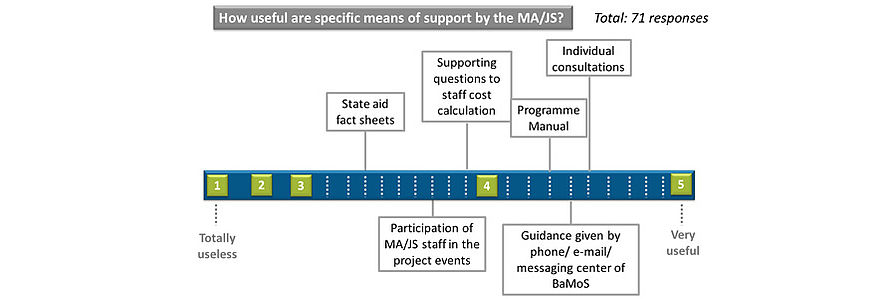
About the projects
As many as 94% of the respondents confirmed that the Programme offers a sufficient variety of project types in its portfolio, i.e. regular projects, extension stage projects, project platforms, seed money projects. The majority of the respondents also indicated that they favoured two-step approach to one-step approach in the application procedure, which included an interim stop before submitting a fully-fledge application.
Many respondents shared their experiences with including SMEs and large enterprises. They noticed positively that companies added value to the project content, as for example, projects got more practice oriented. On the other hand, involving companies might require more work as companies usually have little knowledge about Interreg. Companies are also challenged by the reimbursement principle of the Programme, which implies a long waiting time for compensation and thus higher demands to liquidity.
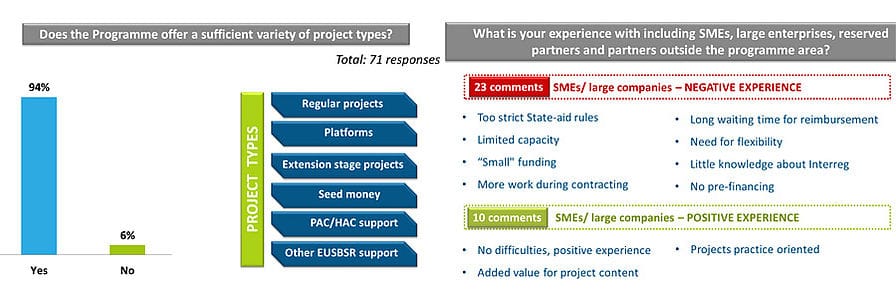
Managing project finances in best way
In the financial survey, the Programme was in particular interested in checking which procedures are most helpful and which cause the highest administrative burden for the projects. Direct support from MA/JS and templates were assessed as most useful. On the other hand, the most troublesome procedure was related to the verification by the first level controllers as well as implementing staff costs rules.
Another topic analysed by the survey were the simplified cost options. The majority of respondents did not favour such solutions for staff costs, neither travel & accommodation. A bit more than half of them consider exclusive application of simplified cost options for project partners below a specific threshold (e.g. EUR 200,000) as beneficial.
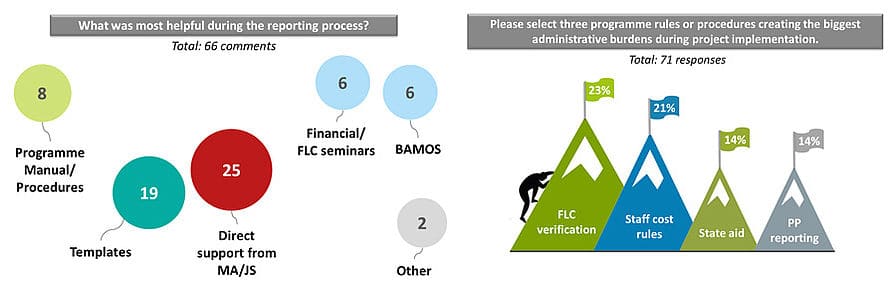
BAMOS
The programmes’ monitoring systems BAMOS was evaluated very positive by its users. A great majority of the users considers the system as useful tool for the data exchange with the MA/JS and were very satisfied with the helpdesk provided by the MA/JS. Even though there was also good feedback on the user-friendliness of the system the MA/JS will still try to further improve BAMOS in this field.
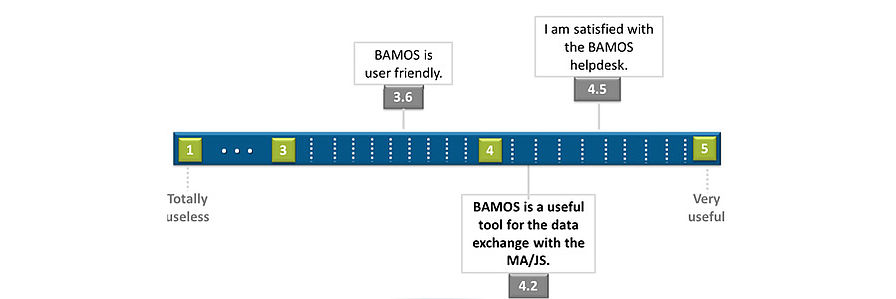
Communication
Within the communication topic, the respondents indicated most useful templates and tools offered by the Programme. These turned out to be templates for PowerPoint and project posters as well as the Programme area map. More than half of the respondents will either keep the project website for the next five years or they are uncertain about it its future use at the moment.
When it comes to channels projects use to reach out to decision makers, the most useful turned out to be face-to-face meetings and events, proving how much Interreg projects are about cooperation.
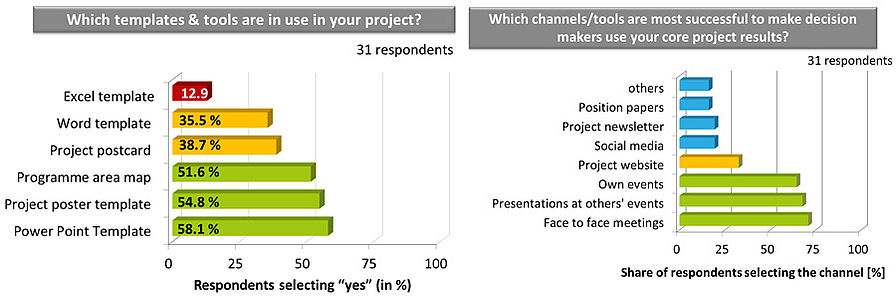
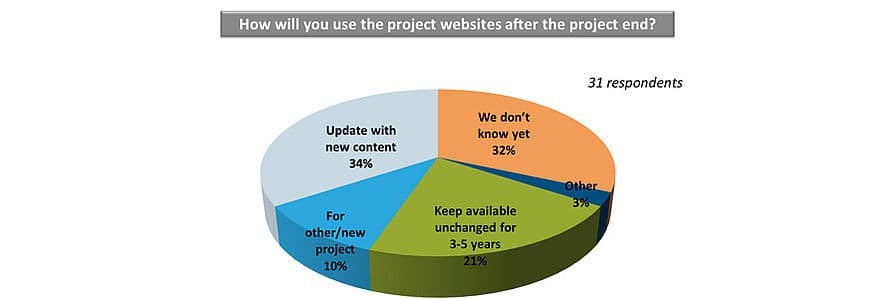
Way ahead
The survey was conducted in the spring 2019 among all project partners in Interreg Baltic Sea Region projects. Apart from the topics listed above, respondents provided the MA/JS with practical hints and ideas for improving application and progress reports templates. These will be thoroughly analysed and considered while preparing new documentation for the new Programme.
If you wish to express your opinion on these or other topics, please contact us via: info@interreg-baltic.eu.






